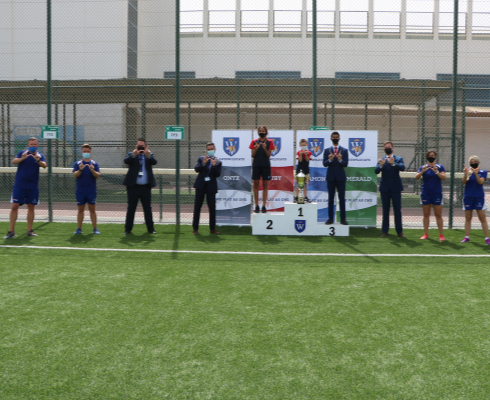The Power of Induction
With the new Academic Year fast approaching, induction planning, organising and preparation is a high priority for most schools. International schools have the extra challenge of welcoming new staff from other parts of the world as well as facing various challenges due to the pandemic in terms of knowing what restrictions will be required for next term. With all this in mind, how do we plan for effective induction? How do we ensure all our new staff have sufficient support, information and are prepared to face changing circumstances?
During this unprecedented time, the task of induction is not to be taken lightly. Especially as it is vitally important that every school gets off to a strong, positive start, ensuring our main stakeholders, ‘our students’ are supported and nurtured to achieve their very best from day one.
When beginning to plan induction, it is important to understand that induction is not a ‘one off’ or ‘two-day show’, but more that it is the beginning of the process for every member of staff within the work place.
‘An ad-hoc approach to induction is fraught with problems, especially since the first few weeks on the job are absolutely critical to the engagement and success of the employee, and a determining factor of whether they stay in the role’. Source
At WIS, wellbeing and support has been a key area for us throughout the year and while planning our induction programme we thought carefully about the information, process and layout of the induction days at the start of the Academic Term. Research supports induction as an ongoing process and ‘brain overload’ is another key issue that occurs time and time again because the wealth of information and various platforms, procedures and processes staff need to take in before the term begins. Neuroscientist D J Levitin wrote that excess information derives from human indecision to prioritise tasks and activities; “This uncertainty wreaks havoc with our rapid perceptual categorization system, causes stress, and leads to decision overload.” Daniel J. Levitin. Extracted from The Organized Mind
At WIS, we have been inspired to re-develop our Performance Management Strategy to focus on staff growth, informed from our performance tracking systems. This will in turn support the planning of our induction sessions so to ensure; a greater work place culture, compliance, staff retention, whole staff productivity and finally, to ensure and establish an excellent impression for all staff in the work place. Therefore, it is important to identifying the ‘dos’ and ‘don’ts’ when planning a successful induction and keeping in mind that induction is not an ‘event’ but something that we sustain throughout the year, offering continuous opportunities for development.
WIS Staff Induction
- Staff needs have been identified in preparation for induction with bespoke sessions planned to support key needs and areas
- Varied sessions are planned with pace and interactivity that fully incorporate HPL Advanced Cognitive Performance skills
- Differentiated support for all new staff joining the school supporting them to build their VAA Empathetic and Hardworking attributes and skills within confidence, resilience, perseverance and collaboration
- Establish peer on peer support networks to enhance staff VAA skills within confidence and collaboration
- Designated online area with a bank of key information that is easily accessible for all teachers and leaders
- Assign SLT to visit different members of staff to ensure everyone is supported and have clear direction for the year ahead and helping to build a culture of high performance, fully ulitising WIS Values, Attitudes and Attributes.
- Allow time for consolidation in a tight induction schedule and build in time for staff to take in all the information being shared
- Open door approach, all leaders available after the induction days to enhance WIS VAA’s within collaboration, support and leading to greater staff confidence.
- Build in time at the end of induction to come back together as a whole school or team to recap and identify next step actions. This will support the beginning of term and clarify key actions and supporting ACP skills within Meta cognition, linking and realising.
- Act on advice and feedback swiftly through survey’s and 1:1 staff feedback to ensure everyone is supported to build their WIS Values, Attitudes and Attributes to begin the academic year.





